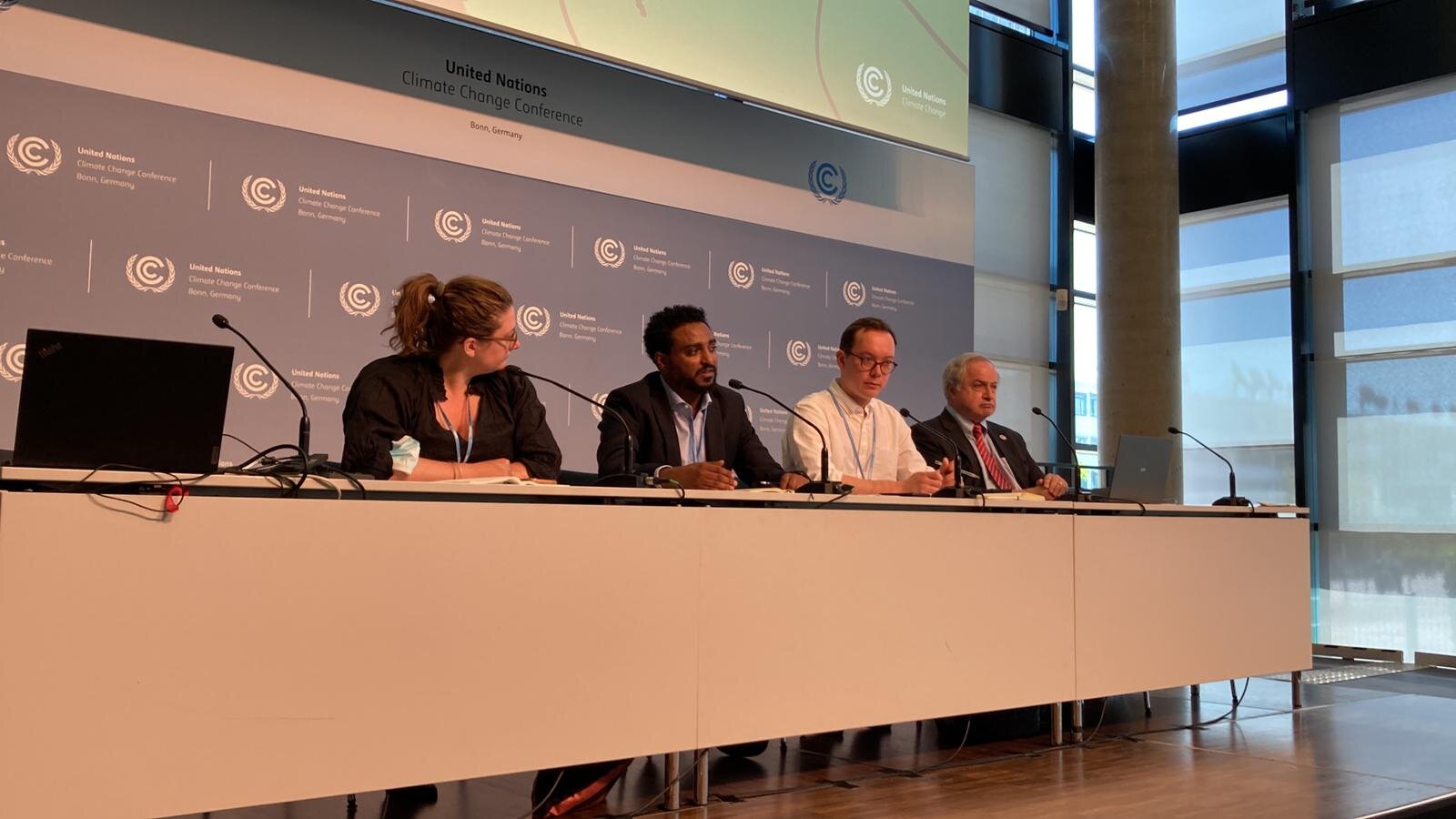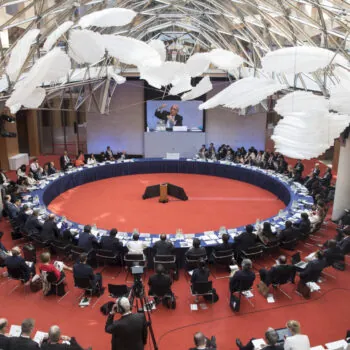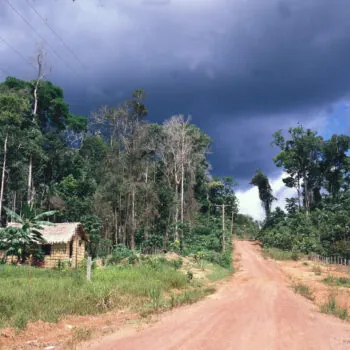Watch the recording
This press conference provided an overview of what has happened at the UN climate change conference in Bonn (SB56), and what needs to happen next.
Speakers and agenda
- Alex Scott, Programme Lead – The overall state of play at the end of the Bonn climate negotiations
- Charra Tesfaye Terfassa, Senior Associate – The latest from the negotiations on loss and damage
- Tom Evans, Policy Advisor – The negotiations on the mitigation work programme
- Alden Meyer, Senior Associate – The path from Bonn to COP27
- Questions from journalists
Comments on what next from Alden Meyer
We are coming out of Bonn with an urgent need to build trust and confidence in after two weeks of tough negotiations.
The incoming Egyptian presidency needs to think strategically about how to build support for an overall political package of COP27 outcomes, including a strong mitigation ambition work program, concrete actions to address loss and damage finance, and progress on adaptation finance and the global goal on adaptation.
Egypt also needs to resolve the loss and damage agenda fight before the COP27 opening plenary. They don’t want to start the COP with a public agenda fight the day before the leaders’ segment. There must be a space at COP27 for a political discussion on how to fix what everyone now agrees is a broken delivery system to get loss and damage finance to vulnerable countries.
Egypt should identify pairs of Ministers from developed and developing countries to lead informal consultations on the mitigation work program, loss and damage finance, and other crunch political issues, as the UK presidency did with good results in the run-up to COP26 in Glasgow. These ministers would work to build trust with their fellow ministers and identify potential landing zones on crunch issues. Ideally, these pairs of ministers would be in place as soon as next month’s Petersberg Dialogue and would continue consultations through the opening of the United Nations General Assembly in September to the Pre-COP meeting in the Democratic Republic of Congo in early October and then to COP27 in Sharm-el-Sheikh.
The good news is that there are several upcoming moments which leaders and ministers can use to demonstrate political will and build consensus on key issues.
Tomorrow, President Biden will host a virtual meeting of leaders from the Major Economies Forum where, on top of today’s submission by Australia of a more ambitious 2030 NDC (Nationally Determined Contribution) we could see announcements from one or two other countries on scaling up mitigation ambition. Leaders will also discuss collaborating on sectoral initiatives on reducing methane emissions from flaring, accelerating deployment of ZEVs, expanding green shipping, and increasing funding for demonstration projects of innovative technologies, all of them to include ministerial follow-up.
The G7 leaders will hold their summit in Germany from June 26 to 28, where they will discuss setting up Climate Clubs for countries committed to ambitious climate action; they should also reaffirm the pledge to “shift the trillions” for developing country decarbonization that they made last December in announcing the Partnership for Infrastructure and Investment, and instruct their finance ministers to develop concrete proposals to operationalize this for leaders to agree on this fall before COP 27.
At the Petersberg Ministerial Dialogue it will convene next month in coordination with the incoming Egyptian COP27 presidency, Germany intends to tee up constructive conversations amongst ministers on the mitigation ambition work program and loss and damage finance. These discussions can help shape political guidance to negotiators on ways to bridge differences on these key issues. There are also opportunities for high-level discussions at upcoming meetings of the Cartagena Dialogue and the High Ambition Coalition.
During the opening week of the United Nations General Assembly in New York this September, there will be opportunities for consultations amongst ministers and heads of delegations to further advance progress on crunch issues.
The US is hosting the Clean Energy Ministerial and Mission Innovation summits in Pittsburgh from September 21 to 23, where they hope to advance collaboration amongst CEM/MI member countries on initiatives in energy, transport, industry, and other key sectors.
The UK will be holding another Climate and Development Ministerial in late September, with a focus of ways to scale up finance for loss and damage and adaption.
The Democratic Republic of the Congo will host the Pre-COP ministerial in late September/early October, where ministers will have the final opportunity to deepen their discussions on key issues before coming to COP27.
The IMF/World Bank fall meetings will take place in October in Washington, with opportunities for the World Bank and other MDBs to commit to mobilizing much higher levels of finance for mitigation and adaptation, and to discuss the role that the IMF Resilience and Sustainability Trust can play in meeting climate finance needs.
Finally, there are a number of G20 meetings where actions can be taken to advance climate ambition:
— Finance Ministers and Central Bank Governors Ministerials in July and October;
— Environment and Climate Ministerial in late August;
— Energy Transition Ministerial in early September;
— Development Ministerial in September; and
— the G20 Leaders’ Summit to be held in Bali from November 14 to 16; coming as it does at the start of the second week of COP27, actions taken here by G20 leaders could improve chances for ambitious decisions on key issues in Sharm-el-Sheikh.


